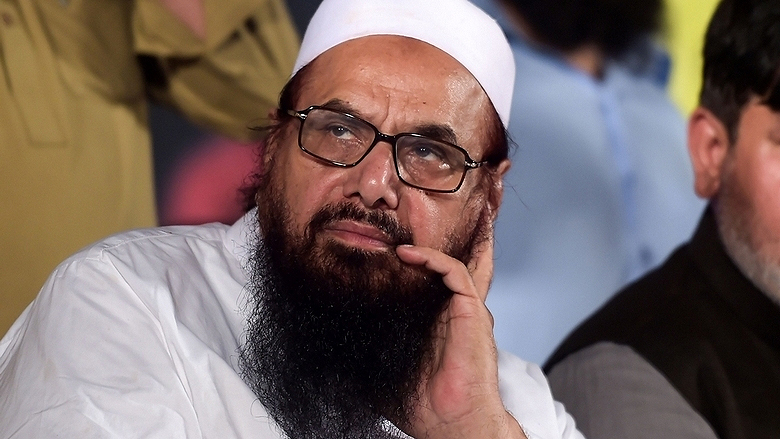Critical media coverage may be 'treason': Pakistan ruling party
ISLAMABAD: The ruling party of Pakistan Prime Minister Imran Khan has launched another blistering attack on the press, linking critical coverage to potential "treason" in the latest broadside against the beleaguered media. The official account of the Pakistan Tehreek-e-Insaf (PTI) party fired off over two dozen tweets in English and Urdu late Tuesday, lambasting the press for coverage criticizing the government and Khan which it deemed "Anti-State".
"Freedom of Expression is beauty of Democracy. Expressing Enemy's Stance is Not Freedom of speech but treason against its people," read one tweet. "Media houses & journalists must take care that in their quest for criticism on State, they intentionally or unintentionally do not end up propagating enemy's stance," read another, with the hashtag: #JournalismNotAgenda.
Pakistan routinely ranks among the world's most dangerous countries for media workers, and reporters have frequently been detained, beaten and even killed for being critical of the government or powerful military. In recent years the space for dissent has shrunk further, with the government announcing a crackdown on social networks and traditional media houses decrying pressure from authorities that they say has resulted in widespread self-censorship.
Media watchdog Reporters Without Borders recently warned of "disturbing dictatorial tendencies" after three Pakistani TV stations were briefly taken off air in what it called "brazen censorship". The Committee to Protect Journalist last year warned that the powerful Pakistani military had "quietly, but effectively, set restrictions on reporting". The government has defended its record, and last week Foreign Minister Shah Mehmood Qureshi told a media freedom conference in London that there was "no question of gagging" journalists after being challenged on his country's record.
Prime Minister Khan, a cricket hero who captained the national team to World Cup victory in 1992, was elected last summer after running a fiery campaign-vowing to crack down on corruption and build an Islamic welfare state. But, nearly one year later, his rule has been marred by a crackdown on civil rights activists, the rounding up of opposition leaders, and increased pressure on the press.
His government is also struggling to right the country's floundering economy, with ballooning deficits, soaring inflation, and a sinking rupee stirring discontent. Among other tweets, the PTI also warned that the media was a "powerful tool of depicting the positive image of our country. Anti-State actions not only impact the credibility of our journalism community but also sends out a wrong message to the world".

Mumbai attacks mastermind
In another development, Pakistani authorities yesterday detained the alleged mastermind of the 2008 Mumbai attacks, a security official said, as the country faces increased pressure to crack down on militants operating on its soil. Firebrand cleric Hafiz Saeed-declared a global terrorist by the US and UN, and who has a $10 million US bounty on his head-was taken into custody following a raid by counter-terrorism forces in the eastern city of Gujranwala.
"Hafiz Saeed was going to Gujranwala to apply for bail in another case when he was arrested," said a security official with knowledge of the arrest, who requested anonymity. A spokesman for Saeed's group, Jamaat-ud-Dawa (JuD), a wing of the militant organization Lashkar-e-Taiba (LeT), confirmed the arrest to AFP, but gave no further details. Another security official said the arrest relates to terror financing charges.
Saeed has spent years rotating in and out of varying forms of detention, sometimes under house arrest, sometimes briefly arrested then released again by authorities. But for the most part he has been free to move at will around Pakistan, enraging India which has repeatedly called for his prosecution over his alleged role in the 2008 attack that killed more than 160 people. Lashkar-e-Taiba is accused by India and Washington of masterminding the four-day assault on Mumbai. Saeed has denied involvement.
The move against Saeed comes as Pakistan is facing a potential blacklisting by the Financial Action Task Force (FATF) - an anti-money-laundering monitor based in Paris-for failing to do enough to combat terror financing. FATF is set rule on its fate in the coming months after placing the country on a watchlist last year. In February, Pakistani authorities banned Saeed's Jamaat-ud-Dawa and Falah-e-Insaniat Foundation-charities that have long been considered fronts for militant activity targeting India.
Washington and New Delhi have long urged Pakistan to take action against LeT, which was banned by Islamabad in 2002 but re-branded itself as JuD and FIF. And earlier this year, Pakistan arrested more than 100 suspected militants and shuttered hundreds of religious schools. The arrests came during an ongoing crackdown on extremists, following clashes with India after a Pakistan-based group killed dozens of Indian security forces in a suicide bombing in Kashmir.- Agencies









